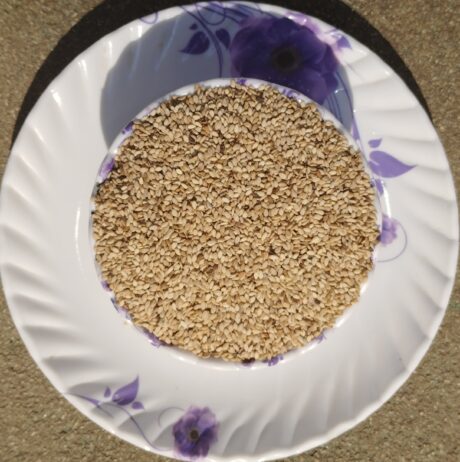Moong dal, also known as green gram or mung beans, is a popular pulse in many cuisines, especially in South Asia. It’s not only delicious but also packed with a variety of health benefits. Here are some of the key benefits of moong dal:
- Rich in Nutrients: Moong dal is a good source of protein, fiber, vitamins (especially B vitamins), and minerals like iron, magnesium, and potassium.
- Supports Digestive Health: Its high fiber content aids digestion and helps prevent constipation. The fiber also promotes a healthy gut microbiome.
- Weight Management: The protein and fiber in moong dal can help you feel fuller for longer, which may assist in controlling appetite and aiding in weight management.
- Blood Sugar Regulation: Moong dal has a low glycemic index, which means it can help regulate blood sugar levels and is beneficial for people with diabetes.
- Heart Health: The fiber, potassium, and magnesium in moong dal contribute to cardiovascular health by helping to lower blood pressure and reduce cholesterol levels.
- Detoxification: Moong dal is believed to have detoxifying properties. It can help flush out toxins from the body and support liver health.
- Boosts Immunity: The vitamins and minerals in moong dal can help strengthen the immune system, making the body more resilient against infections and diseases.
- Anti-inflammatory Properties: Moong dal contains antioxidants that can help reduce inflammation and combat oxidative stress in the body.
- Skin Health: The vitamins and minerals in moong dal, especially Vitamin C and antioxidants, can support healthy skin and may improve complexion.
- Easy to Digest: Moong dal is relatively easy to digest compared to some other pulses, which makes it a good option for people with sensitive digestive systems.
Incorporating moong dal into your diet can be done in various ways—soups, stews, salads, or even as a base for dishes like khichdi. Just remember to soak it properly and cook it well to maximize its benefits and digestibility.
How to Use:
- For Curries & Khichdi: Soak green gram for 30 minutes to 2 hours before cooking to prepare wholesome curries, khichdi, and stir-fries.
- For Pesarattu, Adai & Chillas: Soak overnight, then grind with fresh herbs and spices to create nutritious breakfast items like Pesarattu, Adai, or Chillas.
- Ayurvedic Green Gram Soup: According to Ayurveda, green gram soup is medicinal and helps balance the body’s energies.
- For Gut Health: Mix cooked green gram with buttermilk, ginger, and pepper for a delicious, gut-friendly meal that supports digestion



Reviews
There are no reviews yet.